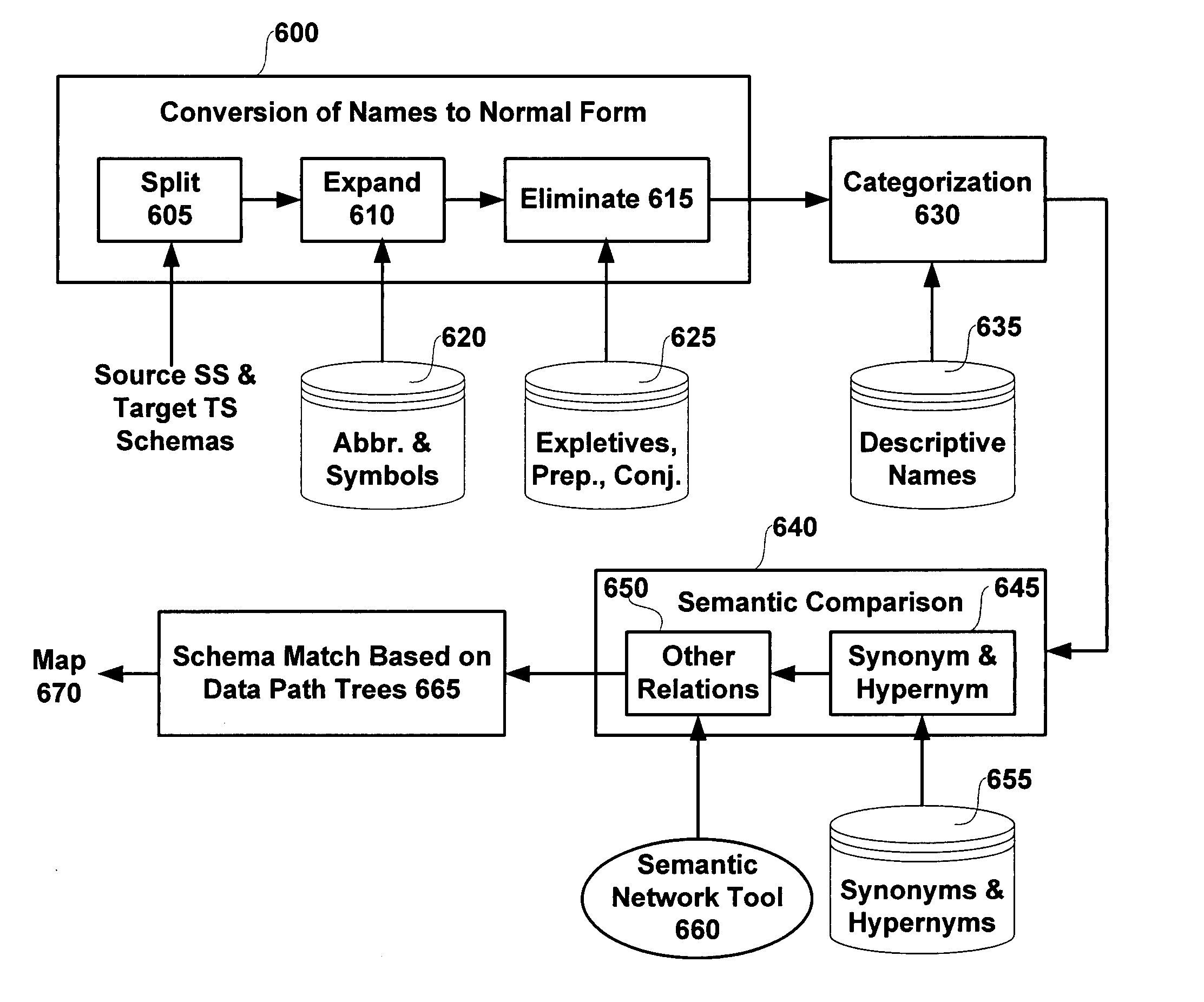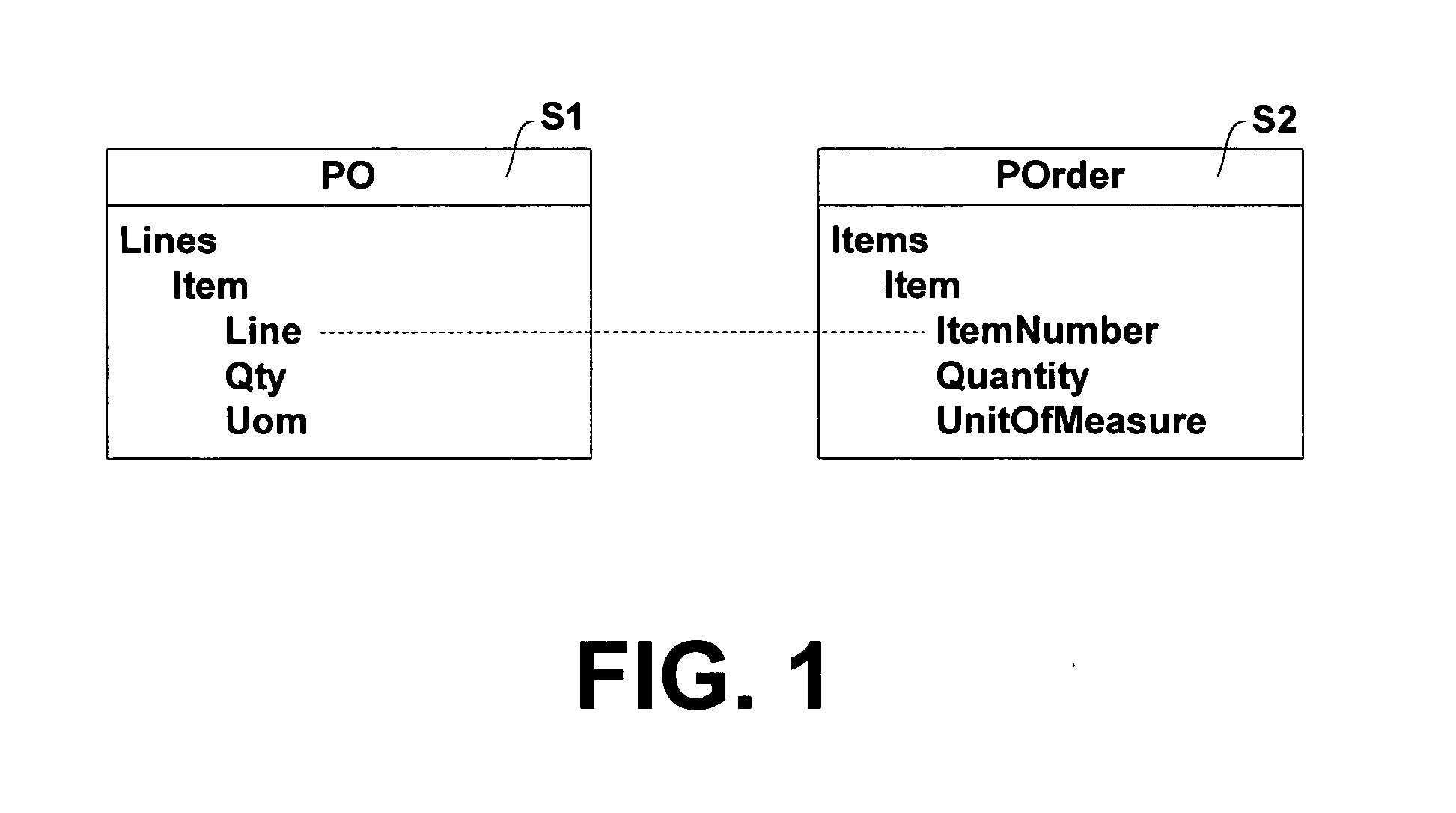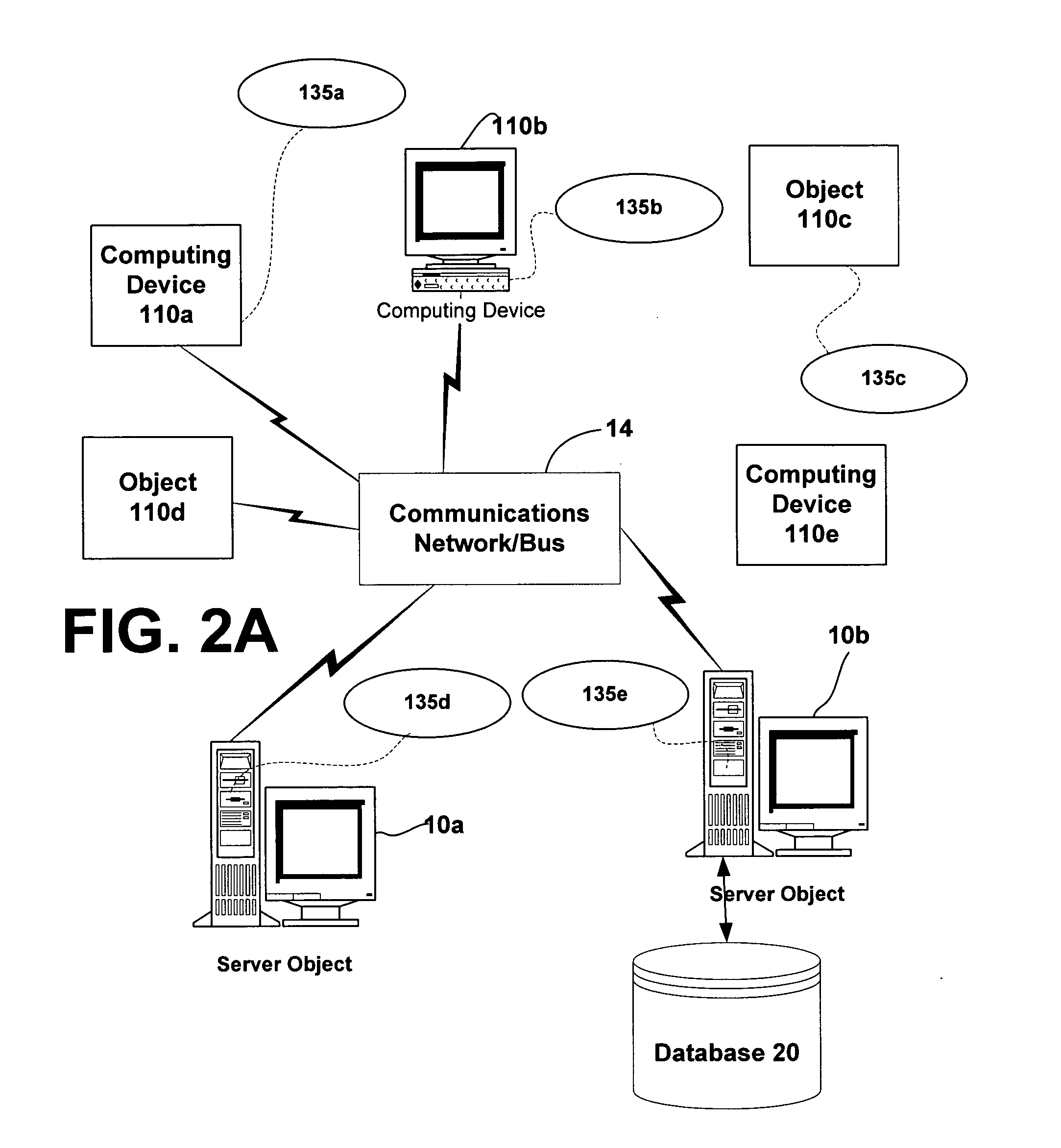Methods and systems for model matching
- Summary
- Abstract
- Description
- Claims
- Application Information
AI Technical Summary
Problems solved by technology
Method used
Image
Examples
Embodiment Construction
Overview
In accordance with the present invention, methods and systems are provided for automatically creating similarity coefficients between elements of two given schemas or models. A mapping between the models can be produced from the similarity coefficients. For example, the algorithm(s) described by the present invention can automatically create similarity coefficients and a mapping between a SQL schema and an XML schema, although it will be appreciated that the invention is generic and not limited to any particular model type or schema. This is primarily accomplished by computing similarity coefficients between pairs of elements, with a pair of elements including one element from the first schema model and one element from the second schema model.
The model match algorithm of the invention is driven by at least three kinds of information in a data model: linguistic information about the names of model elements, type information about model elements and structural informatio...
PUM
 Login to View More
Login to View More Abstract
Description
Claims
Application Information
 Login to View More
Login to View More - R&D
- Intellectual Property
- Life Sciences
- Materials
- Tech Scout
- Unparalleled Data Quality
- Higher Quality Content
- 60% Fewer Hallucinations
Browse by: Latest US Patents, China's latest patents, Technical Efficacy Thesaurus, Application Domain, Technology Topic, Popular Technical Reports.
© 2025 PatSnap. All rights reserved.Legal|Privacy policy|Modern Slavery Act Transparency Statement|Sitemap|About US| Contact US: help@patsnap.com



